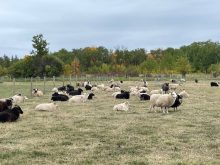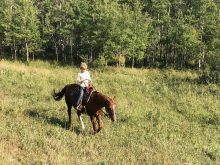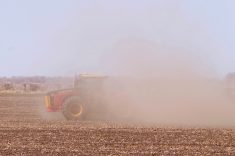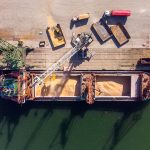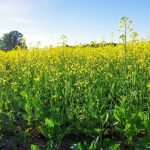It’s a great relief, as I write this, to read reports from the Prairie provinces showing wildfires mostly in check, as recent weather favours firefighting and is less conducive to new fires starting or spreading. I realize, however, that brings cold comfort to affected residents who this summer lost homes, personal property and even loved ones and were uprooted from their communities.
Amid all that, in July, came a smug, unhelpful letter to the Canadian embassy from six Republican members of the House of Representatives from Wisconsin and Minnesota — alleging Canada’s current wildfire season was the result of “a lack of active forest management” and arson. They went on to assure Canadians, “With all the technology that we have at our disposal, both in preventing and fighting wildfires, this worrisome trend can be reversed if proper action is taken” — whatever that meant.
Read Also

Saskatchewan announces forage insurance changes
Funding news, insurance changes and beef trade reactions dominate opening of the Saskatchewan Beef Industry Conference in Saskatoon.
Worse yet, as smoke billowed right across Canada, the six congresspeople hastened to add that “our constituents have been limited in their ability to go outside and safely breathe due to the dangerous air quality the wildfire smoke has created. In our neck of the woods, summer months are the best time of the year to spend time outdoors recreating, enjoying time with family, and creating new memories, but this wildfire smoke makes it difficult to do all those things.”
Between its lines, the letter was U.S. exceptionalism at its worst — insinuating not just that changes in world weather patterns somehow had nothing to do with this year’s disastrous conditions here and elsewhere, but that thick wildfire smoke sailed clearly, harmlessly, over the heads of all Canadians. And sure, let’s top that off with their suggestion we’re being awfully inconsiderate of Americans’ holiday plans and have nothing better to do with our own summers than watch our friends’ and neighbours’ homes burn.
Oddly, after I just went on for 250 words about it, my point today wasn’t to rant, again, about U.S. elected officials’ failure to read the room. Rather, it’s about exceptionalism — and I wanted to draw on an outside example to show how many Canadians sound when they talk about separatism.
Nations splitting from others by various forces and means, for good or ill, is nothing new in history. At the municipal level, there may be nothing wrong with jurisdictions seeking autonomy when residents collectively feel they’re not getting value for their tax dollars. Here in Winnipeg alone, I can think of one such campaign in which a community succeeded in seceding from the city; another similar campaign, not so much.
And if getting value for money was all that western separatism ever purported to be about, I might even be fine with that — assuming that the parties to the treaties covering the land base in question were somehow also fine with it.
The problem, though, lies in the suggestion put forward by many avowed separatists: that the people of Alberta or Saskatchewan or the Prairies or the broader West are rooted in culture and values that the rest of Canada doesn’t share and/or refuses to understand.
Now, to be sure, some cultural markers have evolved within those arbitrary provincial lines. (Darn right it’s a bunnyhug, not a hoodie.)
To imply, though, that Canadians elsewhere don’t share the western work ethic — that they would do nothing, given control of vast swaths of cropland, pastureland, fossil fuel deposits or whatever forest is still left — comes off as arrogant at best. Especially considering the number of Canadians from elsewhere who come west to do work westerners can’t be found to do.
Or to imply, for that matter, that other Canadians don’t value their families’ well-being. Or don’t value entrepreneurship. Or don’t want their offspring to succeed. Many of these ostensibly western traits read as vague as a fortune cookie.
Beyond those insinuations, a lot of the catchphrases of today’s western separatism read, to me, like U.S. Republican talking points on a handful of unrelated political wedge issues. That in turn suggests these movements, like those we saw in the early 1980s, will maintain momentum only until some small-c conservative party regains the House of Commons.
That, unfortunately for all of us, would prove the current noise is not really about resolving any problems unique to the geography, economy or other features of Canada’s West. Rather, this chatter will, until then, serve only to further reinforce an unhealthy, unproductive feedback loop of western alienation for cynical reasons.
If the social or societal costs of politicians’ continued obsession with separatism don’t bother you as Prairie grain growers, consider these costs instead.
Without the federal level of support, someone (a lot fewer someones, I mean) will be on the hook for 36 per cent of your crop insurance premiums, along with 60 per cent of AgriInsurance administrative costs and part of the cost of reinsurance.
That same smaller share of Canada’s population would also be called on to underwrite 60 per cent of any AgriRecovery program, the interest on the interest-free portion of your advance payments, matching funds for your AgriInvest contributions, and a cost share of whatever the independent West does to replace AgriStability, which nobody out here ever seems to like anyway.
That said, farm business risk management shouldn’t be a problem for long. After all, our friends in the U.S. Congress have assured us that with all that technology they have at their disposal they can make a Prairie natural disaster go away.






